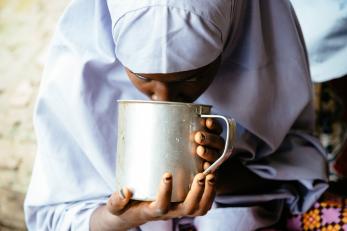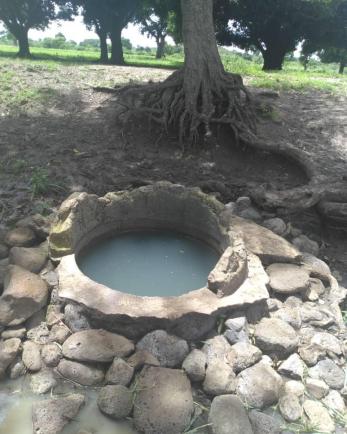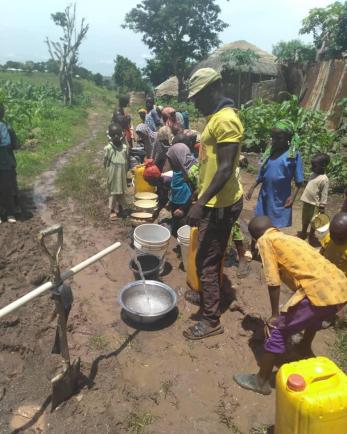Clean water improving lives in Northeast Nigeria

Many households are vulnerable to water-born diseases due to the use of contaminated drinking water and poor sanitary conditions in Northeast Nigeria. About 100 million Nigerians still lack basic sanitation facilities and 63 million do not have access to improved sources of drinking water according to the World Health Organization UN-Water Global Analysis and Assessment of Sanitation and Drinking Water (2015).
Tucked away in the hills of Southern Borno is Gwanha village, a settlement that can only be reached via a rocky road which becomes inaccessible when rain falls, in the Kida community of Biu Local Government Area.
Gwanha is like any other village you would find in Southern Borno, clusters of thatched roof huts in compounds for different families with an outdoor locally made pit toilet and bathing facility fenced with knitted straws. Most families have a barn for animals like goats and sheep; and pens for free range chickens.
Downhill of Gwanha, amidst the rocks are large expanses of farm lands belonging to the community members where they plant crops like groundnut, maize, millet and bambara nut.
During the farming season, the village is usually deserted during the day because both men and women engage in farming with their children, as all will be on their farms throughout the day from dusk until dawn.

Yet, the people and even animals of Gwanha have access to only one source of drinking water. It is an old well that has no covering and is about 600 meters downhill of Gwanha. For just a jar of drinking water that one person can carry, they will have to cover the distance of 1200 meters going down and up the hill. Usually to get enough drinking water sufficient for the house-needs for the day will require at least 5 trips to the well. This is the only life they have known, and have come to accept over time.
As natural with rains, there is a downpour which flows downhill washing all the open toilets in homes, animal feces right into the well, their only source of drinking water in Gwanha.

July 21, 2020, was a remarkable day for Gwanha as water flowed for the first time ever in the community, not from rain but from a hand pump borehole that was dug and put to test by the European Union Maida (EU-Maida) recovery support program for Borno State implemented by Mercy Corps Nigeria.
Through the EU-Maida program funded by the European Union, Mercy Corps is improving environmental resource management and strengthening social cohesion by establishing community resilience groups (CRGs) to create and restore community assets in Gwanha. After engaging in dialogue within the communities and local authorities, the CRGs decided that having clean and accessible drinking water was the most pressing need.
Water is life and now the people of Gwanha no longer need to endure long distances to get their drinking water.
About EU Maida
The European Union (EU)-funded Maida program, aims to directly and equitably support the early recovery of up to 200,000 returnees, IDPs and members of host communities affected by the violent insurgency in Southern and Central Borno State by working with youth and adolescents to create opportunities for employment, improve rural livelihoods, increase access to protection services, and build social cohesion. EU-Maida is implemented by Mercy Corps in partnership with the International Centre for Energy, Environment & Development (ICEED) and supports the EU’s objective to build the resilience of conflict-affected people and communities in Borno in an eco-friendly way. EU-Maida is implemented by Mercy Corps in partnership with the International Centre for Energy, Environment & Development (ICEED).